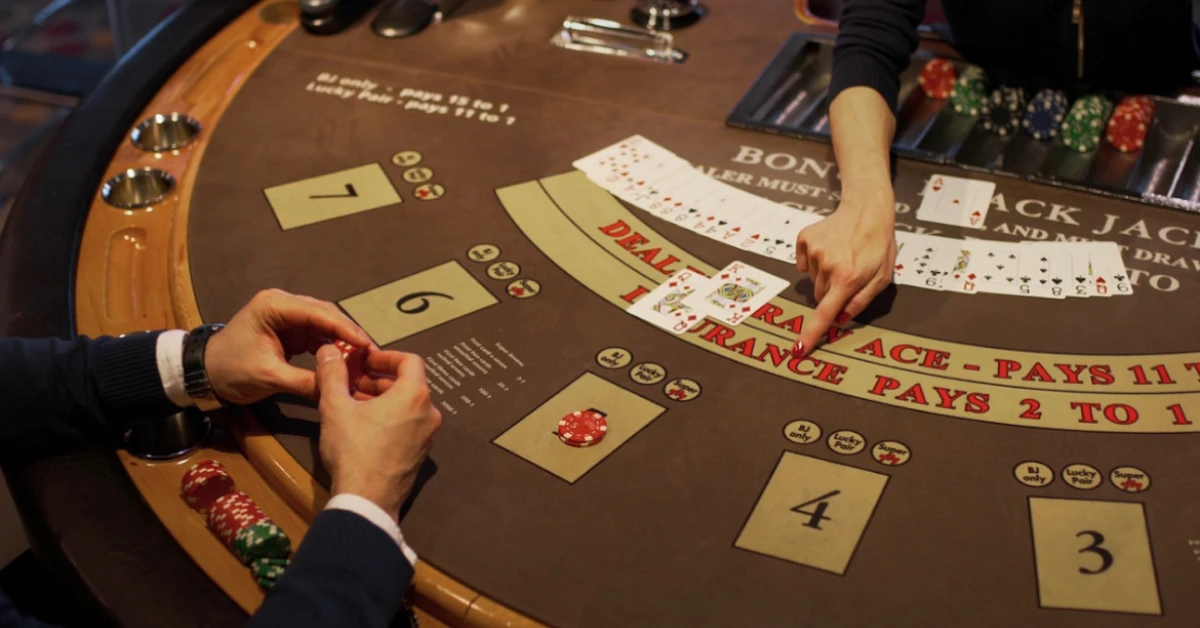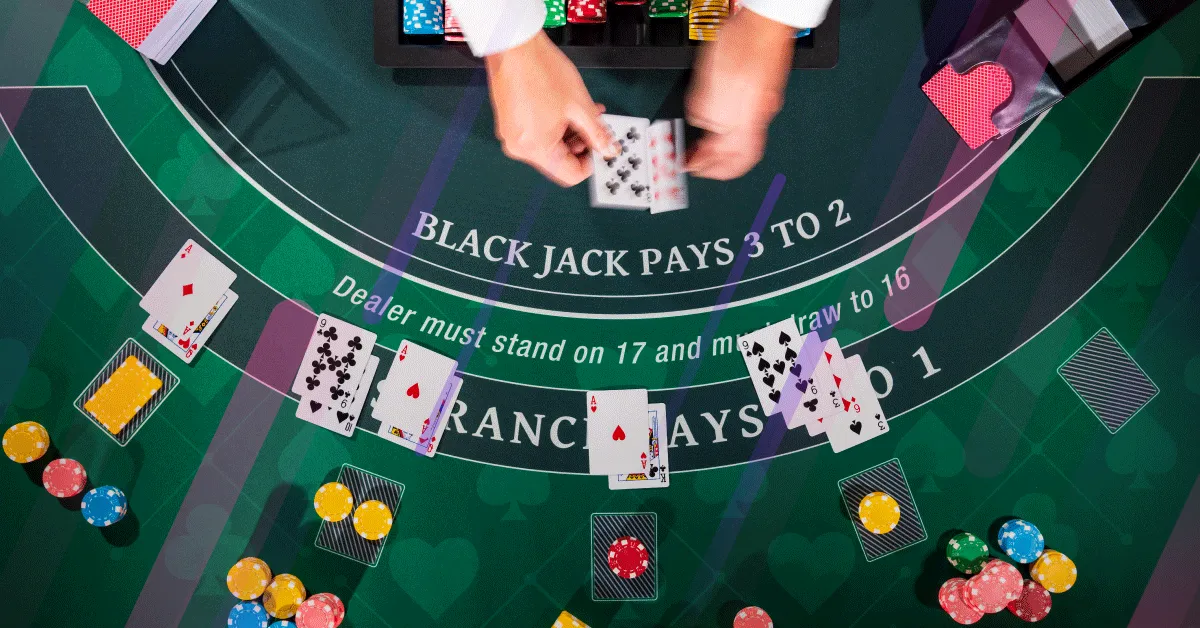Slot Machines Around the US: What’s the Real Deal on Skill Games?
_1200x273.webp)
_1200x273.webp)
1.0
Default
In a seemingly perfect plot twist, it seems that slot machines have taken over the gaming world – but we’re not just talking about casino floors, mind you – we’re also referring to gas stations, convenience stores, and bars and taverns all around the country. But hold on – aren’t they illegal? Well, as it turns out, what was once illegal in certain states have sprouted up like mushrooms, as long as they benefit from the proverbial name-change. The big question is, why have slot machines – a.k.a skill games - become staples in unregulated spaces? It’s true they have existed for years in states like Pennsylvania, where they are referred to as skill games instead of slot and gambling machines, but recently, a lobby aimed to limit and tax their use in PA (we’ll get to this lobby later, by the way). But what is so special about these so-called games of “skill,” and why do they arouse a sense of nostalgia in most but awaken disgust in others?
It’s high time we discuss the issue of slot machines - we’ll go deeper into their enigma and appeal, what exactly differentiates them from other regulated (and taxed!) casino games, and we’ll answer the burning question and find out once and for all if they are legal or not.
Before we go into all the specifics (and before you start looking for slot machines near me), it’s imperative to figure out what these slot machines really are. What you should know from the get-go is that they are not ‘traditional’ slot machines you would often find on land-based casinos or even online casinos. They are not your usual slot machines because there is an added ‘skill’ element to these games, making them slightly different from slot machines in the general sense.
They are different from standard slot machines because the ‘skill’ element comes from choosing between several features that can be good for your gameplay (or not). For example, you can swap two sets of symbols, move a wheel up or down, choose from an array of wilds or multipliers, etc. So in terms of luck, yes, there is still random luck in these slot machines – but since there are also skills involved, since you have to choose, they are technically classed as different from standard slots. In other words, these ‘slot machines’ are considered games of skill and not random luck, and that’s why they are called skill games rather than slot or gambling machines.
These gray games, as they are also called by critics, are often found in different places – usually places where kids can freely roam and have access to (hence the problem). You may have seen them in gas stations, taverns, and bars across Pennsylvania and some other states, tucked away in a corner or in the back of the store. They can also be found at organizations and clubs, and some business owners even operate mini-casinos where there is a wide variety of these machines in a small area in a small town somewhere – classic middle America, where anyone can play with these skill games, regardless of age, and no one is regulating them.

In states like Pennsylvania, where casino gaming is already regulated (both online and on-site), skill games are still prevalent. In fact, as previously mentioned, they are usually seen inside truck stops and small mom-and-pop stores where you could also see kids playing and running around! Of course, you are also bound to find skill games at gas stations – a simple search of gas stations with skill machines near me would undoubtedly yield some great results. They have become part of Americana, and plenty of people have fond childhood memories of having soda or ice cream with the sound of these skill games in the background.
But not everyone is for them – there was a recent question in the state of PA as to the legality of these skill games, and a ruling came forth that skill games were, in fact, legal – but they also had to be limited to certain business establishments. They were legal because they were primarily classified as games of skill and not of luck, which is the case with slot machines on casino floors.
We believe that the issue with skill games stems from not being able to properly regulate them. These skill games (or slot machines, for want of a better name), are not regulated because they exist in small, insignificant stores and taverns, and it would be a real headache and hassle to regulate them. But a majority of casinos in Pennsylvania, where as we said, regulated gambling is alive and well, have called on the government to tax these skill games the same way that regulated slot machines are taxed.
But because they are not considered games of luck per se, they are not regulated and hence cannot be taxed. That’s the whole issue with skill games – and why regulated casino operators are calling for their taxation. It’s all about the ‘fairness,’ lawmakers and casino operators state – because why would casino games be taxed substantially while skill games are not taxed at all? Besides, it would be better for the state overall if skill games were taxed, because it means more tax revenue that would help the public. But in the meantime, the average Joe and Jane are oblivious and couldn’t care less as long as they can play, and the owners of these bars, gas stations, and cafés are adamant that they not get taxed because they are just small businesses trying to get by.
At the end of the day, you are either for or against skill games. Those who are against skill games argue that they shouldn’t be allowed in an unregulated environment, especially since gambling addiction is a problem that is all-too-real. And these places, such as gas stations and convenience stores, are also family-friendly places where children run and roam free.
But there are also those who argue that skill games should be allowed – but they should be taxed, just like their slot machine counterparts. If they are taxed, these taxes could provide even more services for the people, such as better education, healthcare, and infrastructure. For instance, it was proposed that skill games be taxed 42% - close to the taxes for slot machines in casinos, which are taxed at 54%.
But at the crux of the matter is the small business owner – the ordinary gas station slots proprietor or the average bar vendor – those businesses that have skill games and would like to make a buck or two from them.
Although they were more popular years ago and it seems that only the “poorest of the poor” and the elderly play with them today, some say that skill games are part and parcel of American culture and the American way of life. However, it’s interesting to note that in a recent poll, 60% of voters believe that skill games should undergo regulation and taxation in the same way that casino games do. In addition to this, a vast majority also believe that skill games should be limited and that the type of business that carry these skill games should also be closely evaluated.

When all is said and done, the Pennsylvania court has finally issued a ruling: it has banned skill games, skill machines, or VGTs (video game terminals) in businesses that do not have a liquor or casino license and do not have an area where a minimum of 30 patrons can sit, eat, and drink.
This ruling in PA has significant ramifications because it essentially prohibits convenience stores, gas stations, clubs, and even mini-casinos from having skill games within their environs. Many small business owners disagree with the ruling, saying it will jeopardize the livelihoods of small businesses across Pennsylvania and it doesn’t address the broader issue of legalization. They say that clearer guidelines should be put forth, and instead of an outright ban, the government should provide measures that protect both consumers and business owners and set mechanisms in place to prevent their use by children.
For now, though, the ruling stands, at least in Pennsylvania, where skill games are the most prevalent. And while we agree that the conversation about skill games is far from over, we eagerly await what’s in store for the future of skill games in Pennsylvania and elsewhere. As they say, the battle may have been won, but the war isn’t over yet.

August 6th, 2025
Why the Friends Slot Game Is a Must-Play for Every Fan
July 30th, 2025
13 Celebrities Who Love Playing and Winning at Blackjack
July 18th, 2025
Dana White's Net Worth: From UFC Titan to High-Stakes Gambler
July 10th, 2025
Bridge Bidding Guide: Systems, Conventions & Strategy
July 7th, 2025
Famous Celebrities and Legends Who Loved Playing Craps
June 27th, 2025
Best Online Slot Tournaments to Play Right Now
June 26th, 2025
Master European Blackjack: Rules, Strategy Charts & Winning Tips
June 19th, 2025
Blackjack Deviations – Advanced Plays for Bigger Profits
June 16th, 2025
How to Win at Bingo: Tips That Actually Work
June 9th, 2025
Top 10 Flea Markets in Connecticut You Should VisitAre you sure?
This will delete all chat history, and I will not remember what we were talking about.
✔
Todays Hot Deals